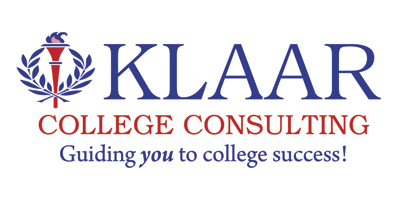The PSAT is a standardized test administered by the College Board and co-sponsored by the National Merit Scholarship Corporation. The test serves a dual purpose: first, it helps prepare you for the more important SAT exam later in high school, and, second, it’s used to determine eligibility for the National Merit Scholarship Program, which can qualify you for a scholarship to public colleges in your state.
You’ll register for and take the PSAT at your high school. The test is composed of two Math sections, a Critical Reading section, and a Writing Skills section. Two hours and forty-five minutes are allowed for completion of the four sections. The scores for the two parts, Math and Verbal, range from 120 to 760, for a maximum score of 1520. This is similar to the SAT, which has two parts worth 800 points each, for a maximum of 1600.
Prep classes, study guides, and practice exams are useful aides in preparing for the SAT, but they don’t simulate the high-stress conditions of standardized exams. The best way to prepare for the SAT experience is to take the PSAT. The College Board has found that students who have taken the PSAT score an average of 145 points higher on the SAT than those who haven’t.
Many students overestimate their viability in the competitive cauldron of admissions. You don’t want to discover during senior year that your SAT scores are too low for admission to your preferred colleges and it’s too late to do anything about it. The PSAT helps you avoid this predicament by showing you two years in advance how you rank among your peers. This will afford you time to work harder in your weakest areas. The College Board assists in this effort by providing feedback on your wrong answers.
Taking the PSAT and earning a high score is the essential first step in qualifying for a National Merit Scholarship. Less than 1% of the students who take the PSAT go on to become National Merit Scholars, so this honor is recognized by all colleges, including the most elite private institutions. To become a finalist, other factors like your GPA and letters of recommendation from educators are also considered, but it all starts with a high score on the PSAT.
There are significant differences between the PSAT and SAT exams that you should note. PSAT scores aren’t submitted to colleges, so they’re not a factor in admissions. Most colleges require that SAT (or ACT) scores be submitted as part of your application. They evaluate them along with your GPA and other factors as part of your academic record.
The SAT is longer than the PSAT by one hour and 15 minutes. The formats of the tests differ in that the PSAT features error recognition and grammar questions in a multiple-choice format and does not require an essay. The PSAT doesn’t include higher-level math questions above Algebra II because underclassmen may not yet have been exposed to geometry, trigonometry, and calculus. That the PSAT contains no high-level math questions makes it less predictive of success in math at the college level, but the SAT fills this gap.
You can take the PSAT up to three times during high school. It’s only offered once each year, but you can take the test in freshman, sophomore, and junior years to get accustomed to test conditions and track your progress over time. However, only the score in your junior year, along with other criteria, will count for National Merit Scholarship consideration. In contrast, your SAT score is not final until you run out of opportunities to retake it.
You can improve your SAT score through diligent preparation, raising an early, lackluster score to a more satisfactory one. You should take the SAT in spring of junior year to allow you subsequent opportunities to improve your score. Although colleges will consider only the highest SAT score that you have submitted, they don’t expect or want you to take it too many times. Remember that the SAT may not be the best test for you. Have a professional compare your PSAT scores to the scores on a Mock ACT to determine which tests you will take and when you will take them.
Klaar College Consulting is a college admissions consulting firm for students who aspire to attend selective and highly selective institutions. We recommend that you take the PSAT in sophomore and junior years to become comfortable with the testing environment and to track your improvement in your weakest areas. Don’t pay too much attention to scores prior to junior year as they do not indicate what you will do when it counts. Simply work on your weak areas.
A Certified Educational Planner with 20-plus years of experience, Dr. Klaar is one of the nation’s top college consultants and has led hundreds of students to college success! For more information: Call 803-487-9777 or visit the www.cklaar.com.



